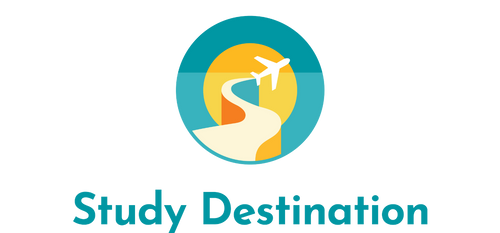Planning to study or work in Ireland?
You’ll likely need a visa or permit. Here’s a straightforward guide to the types of visas, application steps, and requirements for students and travelers in Ireland.
Types of Visas for Ireland 🇮🇪
Tourist Visa (Short Stay - C) ✈️
Duration: Up to 90 days
Ideal for short trips, including intensive English courses. This visa doesn’t allow work or extendable stays. If you plan to visit other EU countries, consider the multi-entry option.
Application Steps:
✅ Submit an online form.
✅ Pay the fee (€60 for single-entry, €100 for multiple).
✅ Prepare a valid passport (12-month minimum validity).
Working Holiday Visa 💼
Duration: 12 months
Available to citizens of Argentina and Chile, this visa allows both work and leisure travel throughout Ireland and even the Schengen Area. It’s ideal for young travelers who want to explore while earning.
Note: Only a limited number of slots are available each year (200 for Argentina, 100 for Chile).
Student Visa (Long Stay - D) 🎓
Duration: More than 90 days
Essential for students in courses longer than three months. With this visa, you can study and work part-time (20 hours per week during school terms, 40 hours during holidays).
Upon Arrival: Register at an immigration office within 90 days to obtain the Irish Residence Permit (IRP), which grants official student and work permissions.
General Employment Permit (Stamp 1G) 💼
Valid for non-student work after completing studies in Ireland, allowing skilled professionals to fill in-demand roles.
Duration: 2 years, extendable for an additional 3 years, potentially leading to permanent residency.
How to Apply for a Student Visa for Ireland 🎓
1. Apply for an Eligible Course
- First, choose a program listed on the Provisional List of Eligible Programs (ILEP). Only courses on this list qualify for student visas.
2. Complete the Online Visa Application
- Submit the required form online and pay the fee (€60 for single-entry, €100 for multiple-entry). Non-EU students, be sure to apply at least three months before your start date!
3. Gather Essential Documents 📄
- Acceptance Letter: Proof of admission from your chosen institution.
- Proof of Finances: Non-EU students need to show they have at least €10,000 for living expenses.
- Health Insurance: International health coverage is mandatory.
- Proof of Accommodation: Show where you’ll be staying in Ireland.
- Academic Documents: Include transcripts or certificates from previous education.
- Intent to Return: Demonstrate your intention to leave Ireland after your studies (usually with a return ticket or other plans).
Irish Residence Permit (IRP) and Registration 🗂️
Non-EU students staying for over 90 days must register with the Irish Residence Permit (IRP), allowing them to work and study in Ireland legally. Here’s how it works:
-
Schedule an Appointment
- Book an appointment online as early as possible—slots fill up quickly, especially in major cities.
-
In-Person Registration
- Bring your acceptance letter, proof of funds, health insurance, and payment for the IRP (€300). You’ll receive your Stamp 2 visa, allowing you to work part-time while studying.
-
Receive Your IRP Card
- Within ten days, your IRP card will arrive, allowing legal residency in Ireland during your studies. Keep it on you at all times, as it’s essential for identification and work.
Common FAQs About Visas in Ireland ❓
-
Do EU students need a visa to study in Ireland?
No, EU students don’t need a visa but may want to register with local authorities if they stay over three months. -
Can I work on a student visa?
Yes, you can work up to 20 hours weekly during the term and 40 hours during holidays. Make sure to have a PPS number for legal employment. -
What is the PPS Number?
It’s a unique ID for tax and social services. You need it to work, and it’s issued once you have a fixed address and IRP in Ireland.
Visa Application Tips 💡
- Start Early: Begin your visa application at least three months before traveling, especially if you’re a non-EU student.
- Check Document Requirements: Each nationality has specific needs; make sure all paperwork is in order.
- Book Appointments in Advance: For the IRP, aim to book nine weeks ahead if possible.
Ready to Apply?
Ireland’s visa process is straightforward but requires careful planning. Make sure you meet each requirement, and soon you’ll be on your way to an incredible experience in Ireland!


